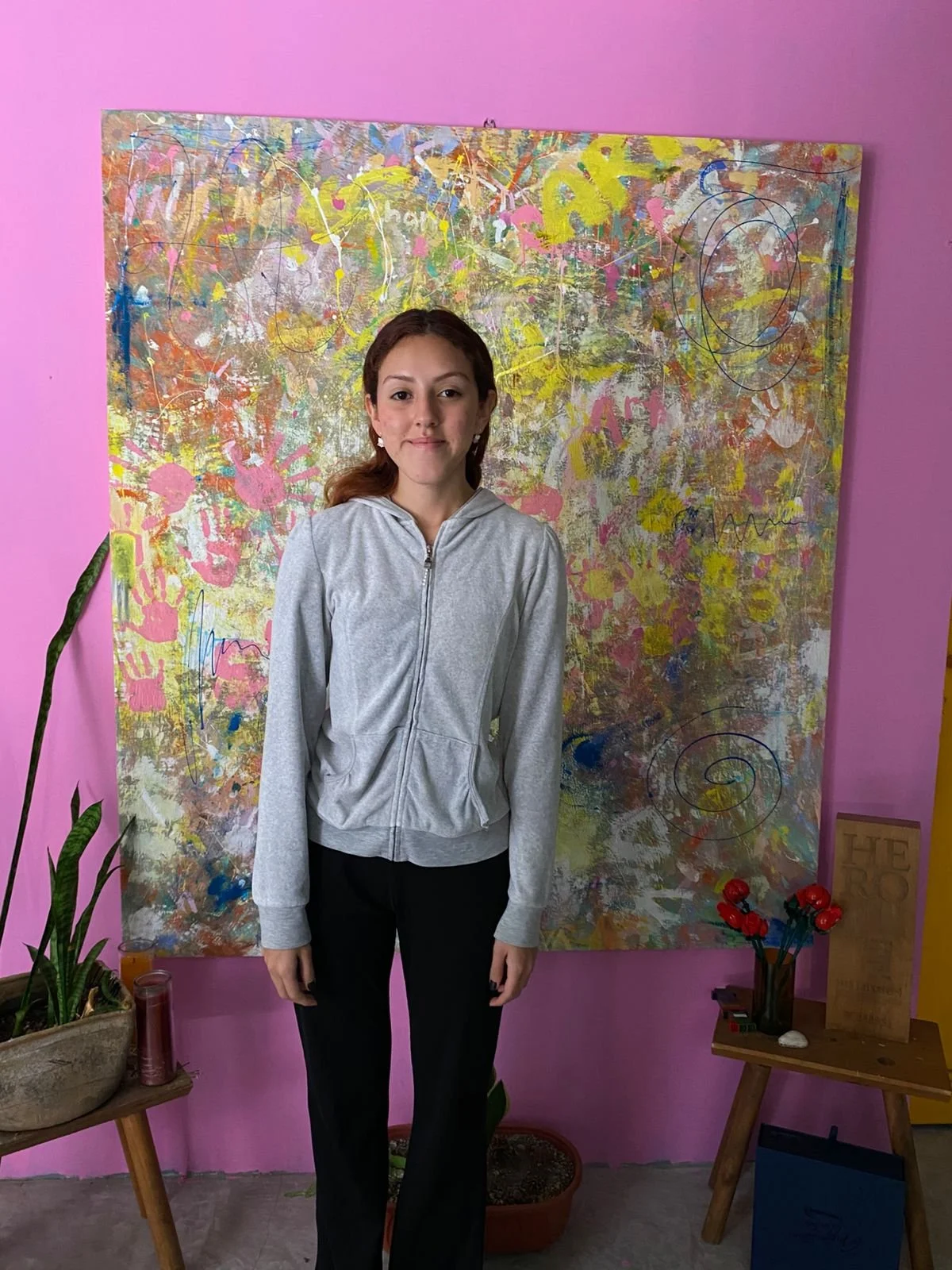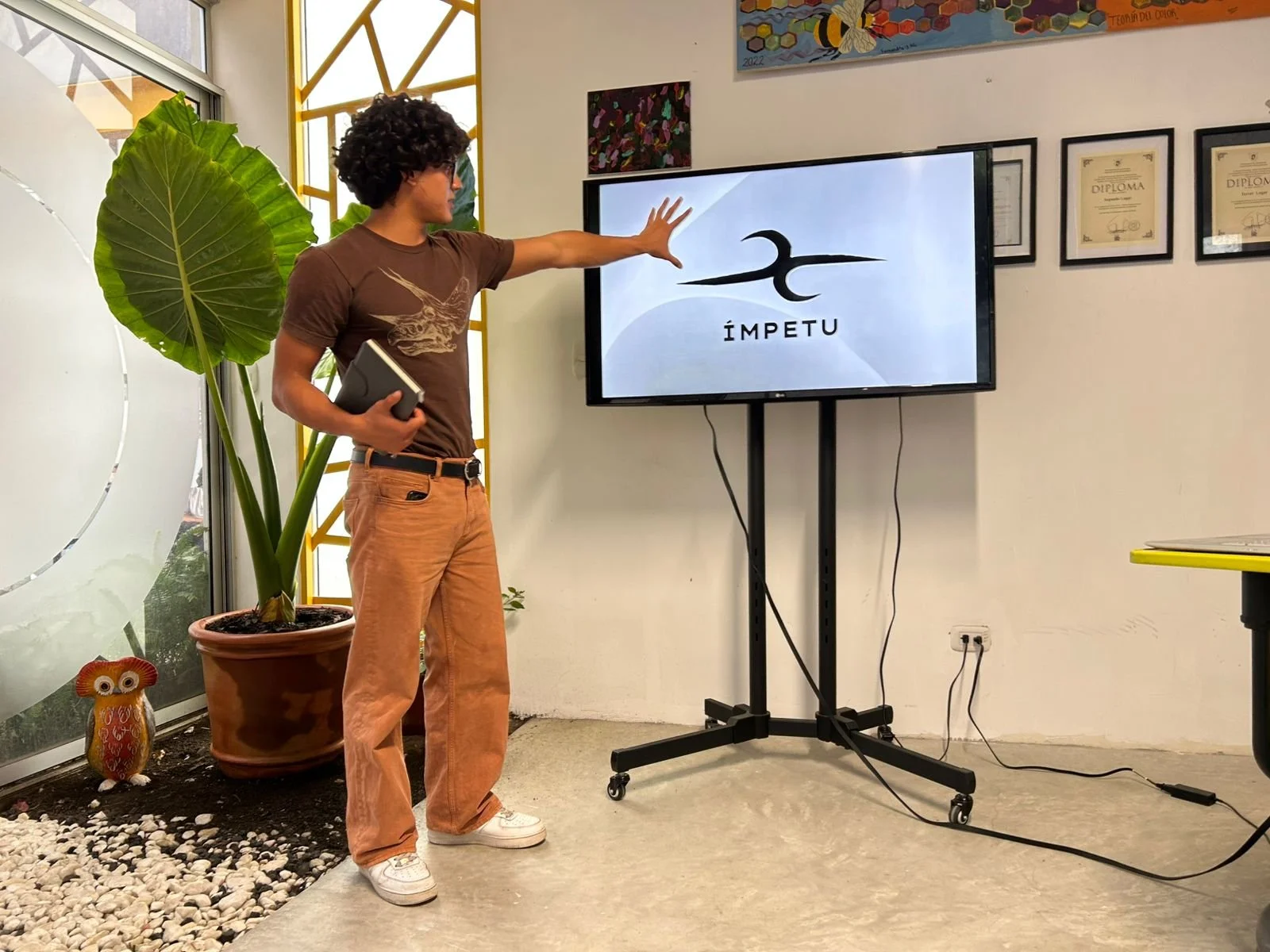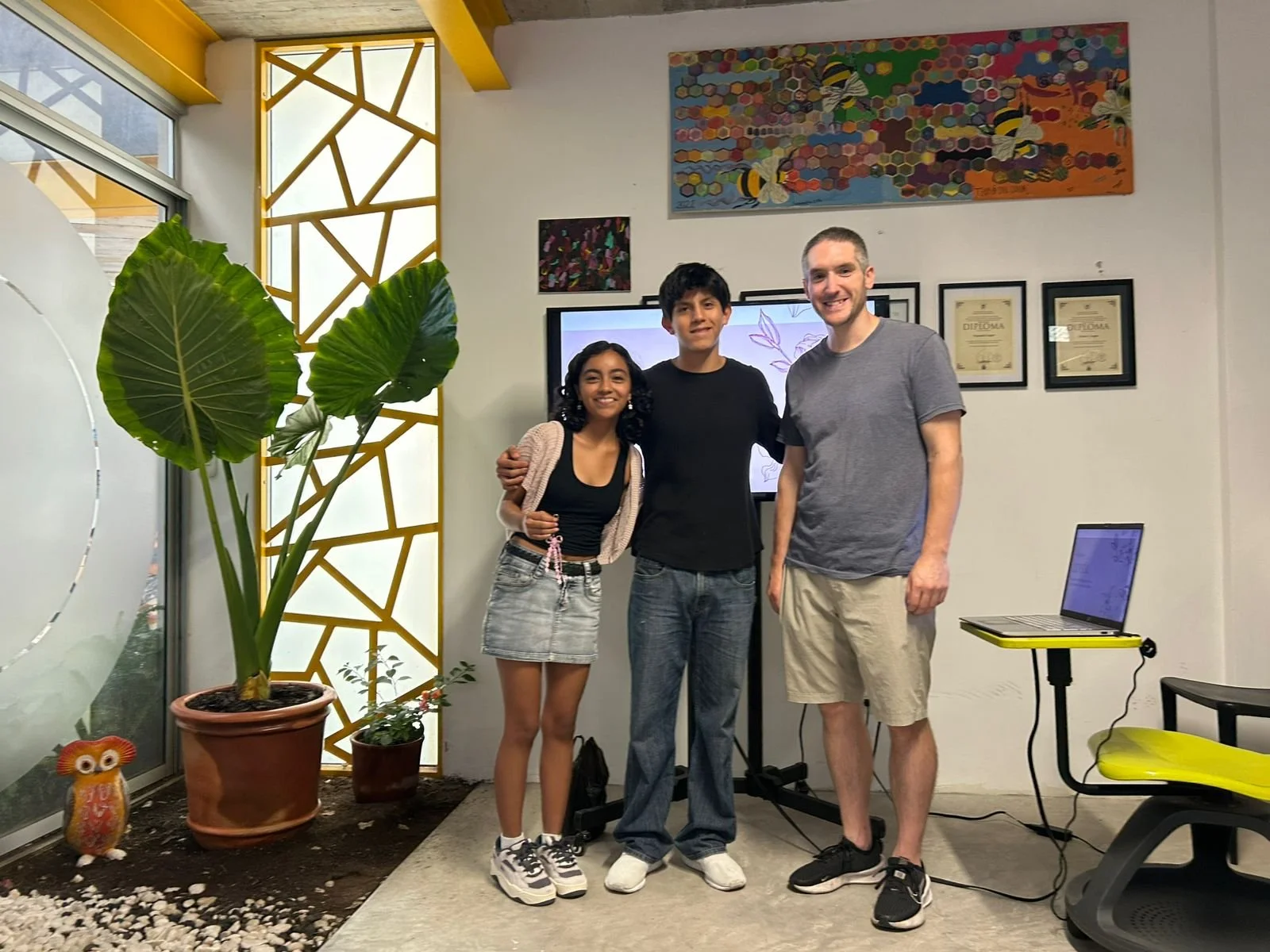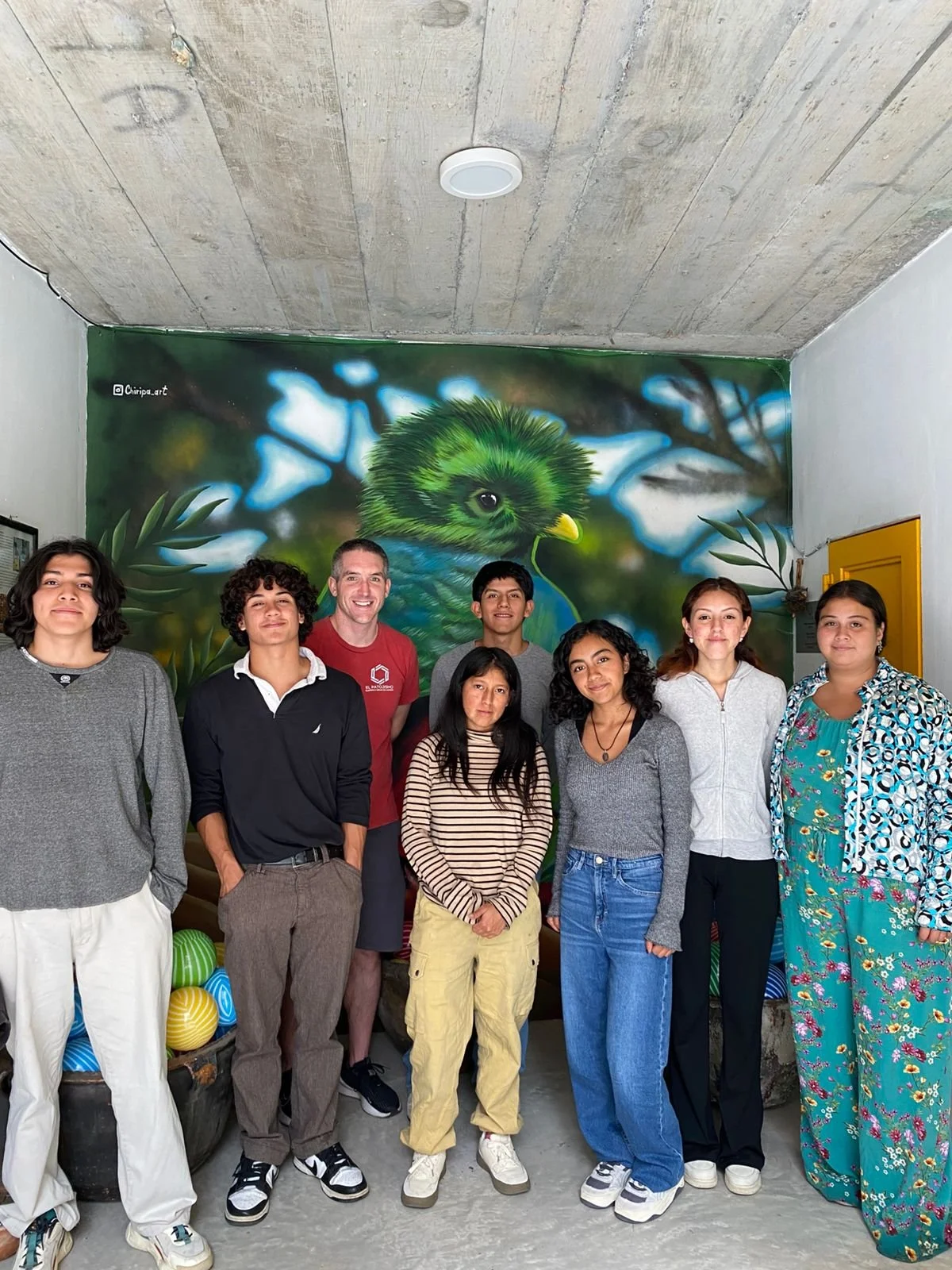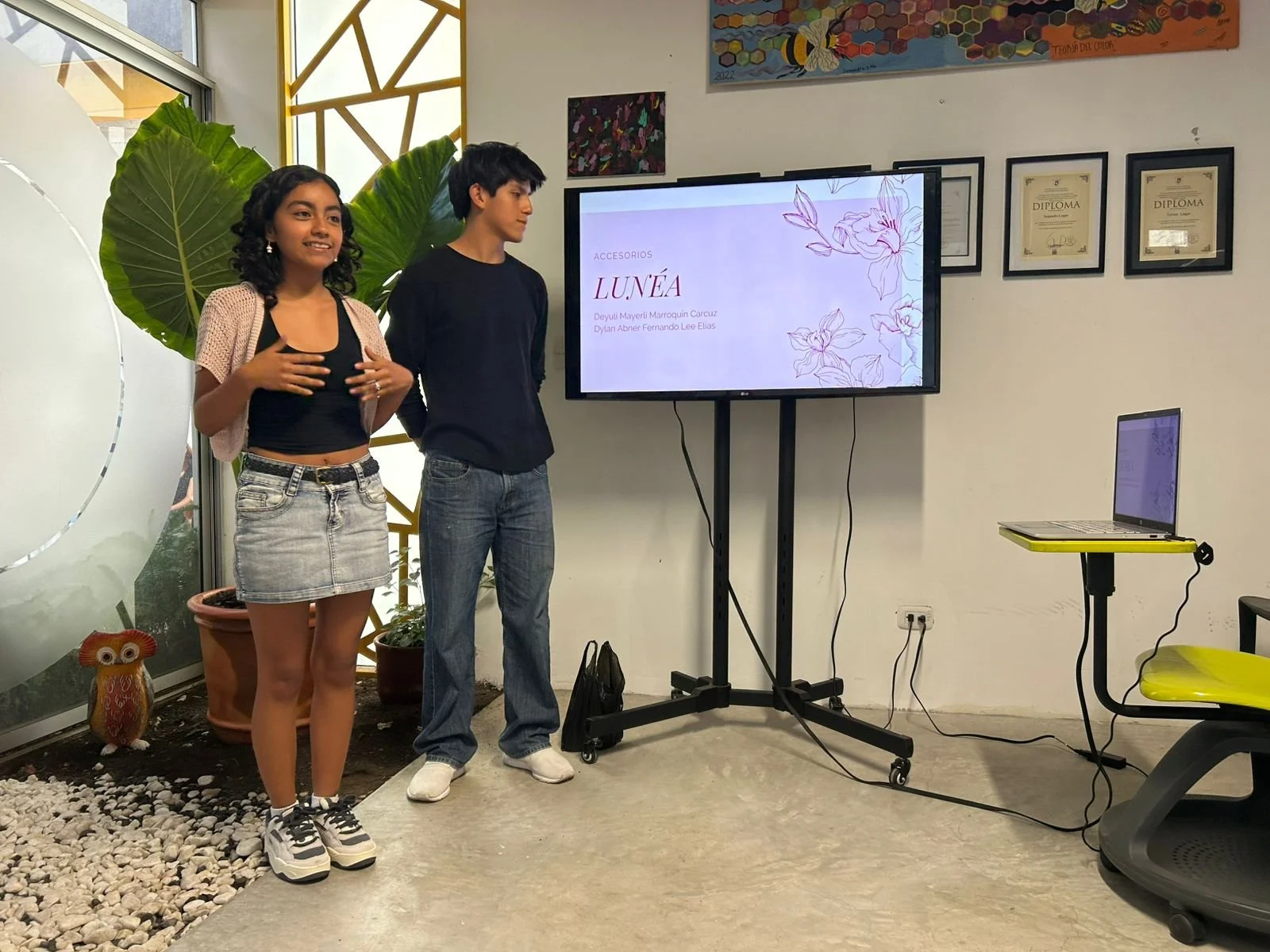Shark Tank, Jocotenango Style: How El Patojismo Students Are Turning Ideas Into Impact
The room buzzes with anticipation as students step to the front, pitch decks in hand. Judges lean forward, notepads ready.
Welcome to Shark Tank, El Patojismo style.
Now in its third year, the competition has become a widely anticipated event at El Patojismo in Jocotenango, Guatemala, offering support and funding for students with bold ideas to gain confidence and turn their visions into reality.
All of the action unfolds in the Padnos Innovation Center, a dedicated hub designed for students to brainstorm, explore, and bring their business ideas to life. The center is named in honor of Daniel Padnos, whose vision and generosity established the startup fund that provides student winners with the seed money they need to launch their ventures.
Big Ideas
This year the judges selected three winners, including Abigail Ortiz, who found inspiration close to home. Abigail saw a way to expand her father’s existing jewelry business by creating La Casa de Cera Ortiz. Her plan: Sell custom wax molds, the intricate forms dipped into silver to create rings, directly in Jocotenango.
Abigail Ortiz earned funding for her business, La Casa de Cera Ortiz.
“Most artisans have to travel all the way to Guatemala City to buy wax molds,” teacher Andy Zweber says. “Abigail’s idea was to provide them locally, with the option of unique designs. She would manage the sales channel and leverage her father’s network and contacts.”
Abigail impressed the judges and walked away with the backing to launch her venture.
Santiago Oliva found his idea in the world of sports. A swimmer and avid athlete, he noticed competitors snacking on special foods before and after competitions and decided to create his own version.
Santiago Oliva presents his idea for Impetu.
Enter Suplementos Ímpetu, his homemade protein bar made of cacao, peanut butter, salt, and honey. Nutritious, affordable, and tailored for athletes like himself, Santiago’s bars stood out to investors. He has plans to eventually add new formulas and flavors.
Then there's Lunea, the brainchild of students Deyuli Marroquín and Dylan Lee. Their pitch showcased handmade accessories—rings, bracelets, pins—designed for teenagers and young adults.
“The judges liked that they’re exploring who their customers are,” Zweber says. “The product is not quite there yet, but the spirit was and the way they’re analyzing problems.”
Like many young startups, Lunea is still in development, with plans to use their investment to refine their craft and marketing.
Lunea’s Deyuli Marroquín and Dylan Lee with Andy Zweber.
Greater Impact
Behind the scenes, Zweber plays a critical role. He teaches entrepreneurship, a required subject for students in grades nine through eleven. Those interested in Shark Tank work with him for months to refine their pitches, breaking down target markets, identifying unique selling points, and calculating budgets. They learn to create pitch decks, map out sales channels, and request realistic investment amounts.
“They usually make their first 50 units with the investment money they receive, then reinvest the revenue to make the next 50, keeping a portion as profit,” Zweber explains.
Each year, three judges from outside the school—this time two restaurant owners and a furniture restoration entrepreneur—join the panel. For students, it’s their first taste of presenting to strangers in the business world.
Most investments range between $300 and $1,200. Small by some standards but transformative here. “The impact is greater, and you can move faster,” Zweber says. “You can do a lot more with a lot less.”
The program’s first winner, two years ago, proved just that. Her natural-ingredient shampoo is now sold in a local salon and through direct sales. With 380 bottles sold at a profit of about $5 each, she’s earned more than $1,500, nearly four months’ worth of a typical salary in Guatemala. While she continues to work in a restaurant for now, she hopes to grow her shampoo sales into a fulltime business with the help of Zweber’s financial modeling and a little more time.
Stories like hers demonstrate that students are learning more than how to make a profit.
The 2025 Shark Tank participants at the Padnos Innovation Center at El Patojismo.
“This is a different skill set, so it’s not necessarily the kids who get good grades who are also good at sales and marketing,” Zweber says. “[Our past winners] have been great role models, and the program starts to feed itself a little. The fundamental skill of entrepreneurship is solving problems, using creativity, resources, innovation, and those are skills that are valuable for everyone, regardless of profession.”
As Juan Pablo Romero Fuentes, El Patojismo’s founder, watches the students’ creativity unfold each year, he sees his vision in action, as opportunities for students also lead to stronger local economies.
As the school posted on Instagram after this year’s competition: “The best investment is in education and youth entrepreneurship! Students’ ideas, creativity, and vision inspire us to continue believing in what comes from youth!”
In Jocotenango, those investments are already paying off.
Presenting the idea for Lunea.
# # #
JustWorld International
Established in 2003, JustWorld International was created to connect equestrians with a direct way to help fracture the cycle of poverty through education, healthcare, and nutrition programs for children around the world. Ambassadors from more than forty countries have since committed to “Ride for the Cause” and transform the lives of children through equestrian sport. Envisioning a more just world, the nonprofit organization cultivates strategic, project partnerships in a collaborative approach to impact the lives of nearly 10,000 children around the globe on a daily basis.
To donate, become an Ambassador, or learn more about JustWorld, please visitwww.justworldinternational.org or @justworldinternational on Facebook and Instagram.
JustWorld International is a 501(c)(3) charitable organization in the United States and tax-deductible donations are accepted in the United States. JustWorld International has no political or religious affiliation.


